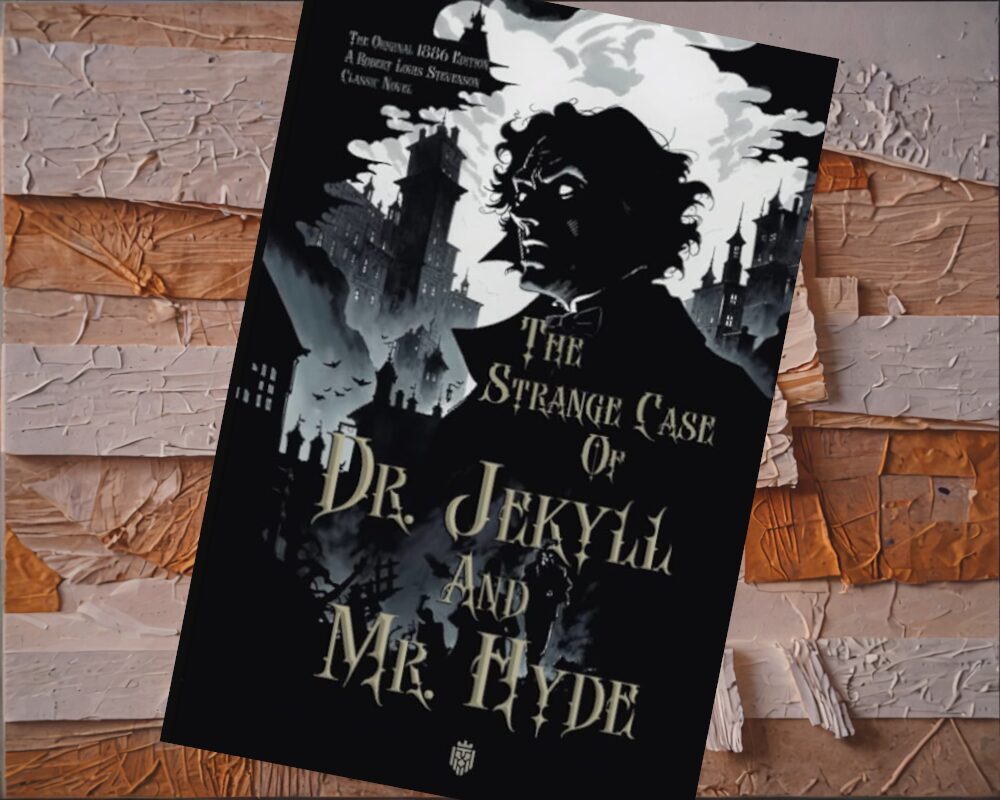“The Strange Case of Dr. Jekyll and Mr. Hyde” by Robert Louis Stevenson, #869 on the list of Books to Read Before You Die, has been a welcome respite from the literary labyrinth I’ve recently been trudging through.
Chased not so much by a Minotaur as by a Woolf, I’ve been far off the well-worn path, in the deep woods, surrounded by sky-high hedges and tormented by a distant howl.
I’ve escaped, though, and I wanted something a little less literary for my next book, so I figured an old fashioned adventure story would fit the bill.
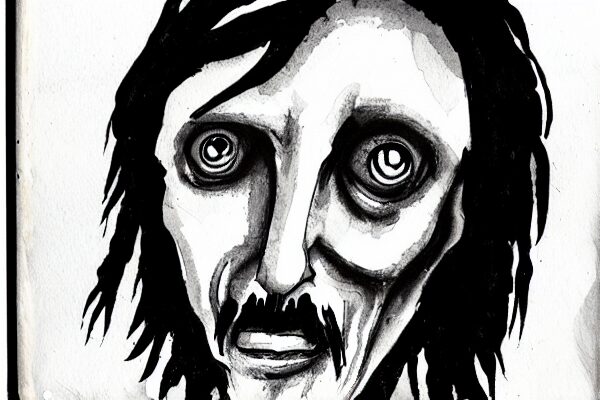
Robert Louis Stevenson is one of those authors whose works are regarded as “classics” by nearly everyone who can read. Any list of popular books will feature one of his works — his most famous are probably “Treasure Island” and “Kidnapped,” but Jekyll and Hyde also shares a secure place in the literary canon. And, despite being mostly aimed at children, his books are enjoyed by people of all ages.
Who am I kidding? It’s mostly old people at this point. The “Fourth Wing” crowd aren’t getting their rocks off to “Treasure Island.”
Sick! Sick! Sick! Don’t Resist!
Published in 1886, Jekyll and Hyde was one of several famous Stevenson works that were written while he was bedridden in a seaside town in the south of England, doing a whole bunch of laudanum and writing writing writing — in every sense of the word — feverishly. (My sort of vacation!) Thus adding to my anecdotal theory that all the best books are written by people who either A) Aren’t writers, or B) Are in some way sick.
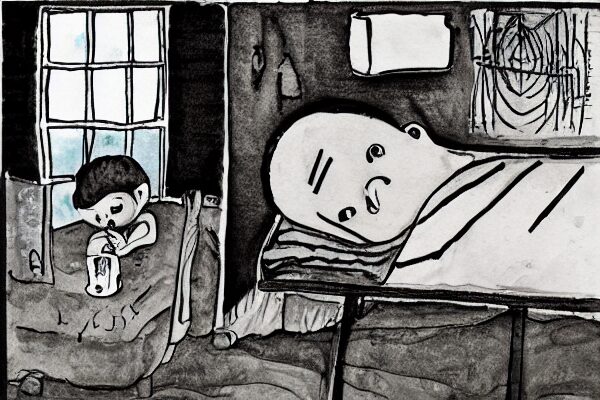
A Proper Toad’s Proper Grandmother
I read Jekyll and Hyde for the first time after my Proper Grandmother took me aside to say, “When I was a little girl, I had nightmares that Mr. Hyde was at my window.”
This meant something coming from her. She talked about her emotions in the Minnesotan Episcopal fashion — begrudgingly, and only ever in places where no one could overhear.
So, naturally, I found a copy and read it right away, thinking this Jekyll and Hyde thing must have been truly horrific.
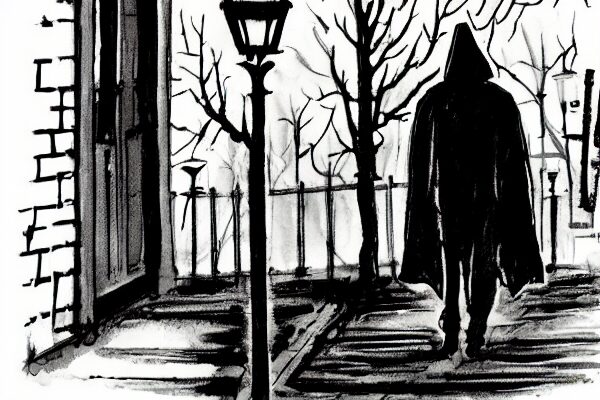
It wasn’t. Not the tiniest bit. Even as a 12 year-old I could see that the horror genre had grown by leaps and bounds since Proper Grandmother had read whatever quaint little novellas she’d been able to smuggle into her central-European hovel and fawn over by candlelight.
I was coming from a background of not only Stephen King, but A Nightmare on Elm Street and Friday the 13th and Hellraiser. A British doctor with a split personality didn’t exactly pump my horror-loving nads, and having grown up thinking Cenobites were hiding under my bed, I wasn’t too worried about some dandy and his fancy ego-bending concoctions.
I had real worries: Guys with bloody lines all over their faces.
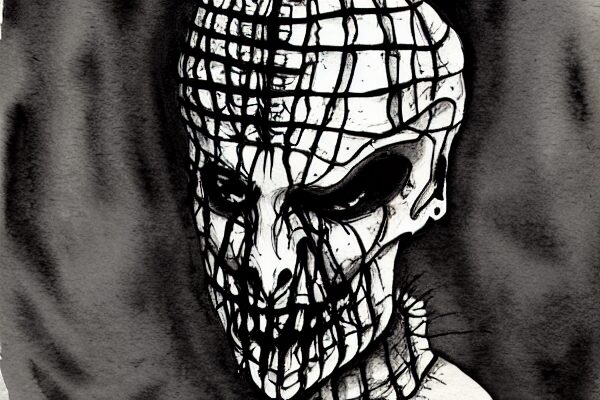
A Double Existence
Modern retelling of the Jekyll/Hyde story have seen the character of Mr. Hyde ballooned into something of an Incredible Hulk, which might be more exciting, but is wildly off base. The actual story sees a prim-and-proper doctor develop a potion that makes him smaller in stature, not some hulking monstrosity. The horror is that he’s an entirely different person; a person who gives in to and revels in his darkest desires.
The idea being that every person has these two sides. One presentable, stable, and of good social standing. The other hideous, heinous, and capable of committing the kinds of atrocities of which our “normal selves” can only daydream.
If you could become a different person, would you? To switch not only bodies but desires and purpose? Become a person who could drink or gamble or screw their way across town, a person who could get in fights, a person who could murder the guy you don’t like rather than just grumble about him when you’re all alone on a stairwell?
Bear in mind that you WOULD BE a different person — such are the workings of Jekyll’s potion. When you switched back (by consuming the same potion), you’d look entirely different and, presumably, would never be punished for your wrongdoings. The other you — the evil you — would simply vanish.
I’m guessing a lot of us would consider it and consider it strongly.
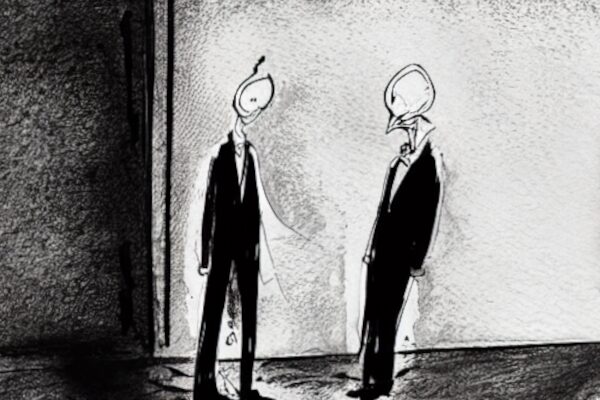
Concocting a Metaphor
I’ve often wondered if Proper Grandmother saw the image of Mr. Hyde in someone she knew. That is to say, was there a person in her life that had a double, a more sinister counterpart?
The effect of the potion the titular doctor drinks isn’t all that different than the effects of alcohol or other drugs (laudanum, perhaps?), and I feel safe in assuming it is some kind of metaphor for the “double life” a lot of addicts lead. I honestly don’t know if Proper Grandmother had someone like that in her life, but it certainly isn’t outside the realm of possibility. Hell, maybe she led a double life.
I’ve definitely felt that “call of darkness” Dr. Jekyll feels.
Once, in Ubud, on the island of Bali in Indonesia, I tried in a drunken state to convince several compatriots to pile four bodies onto a tiny motorized scooter and drive through the rice fields during a torrential downpour so we could get hamburgers. The road on which we would have traveled looked like this:

“We’ll crash in the storm!” I told everyone. “We’ll absolutely crash and it’ll be ABSOLUTELY GLORIOUS. And if we DON’T, we’ll get HAMBURGERS.”
Calmer heads prevailed that night, thankfully, and to this day I have no idea why I felt the desire I did — a desire, almost a need, to crash a scooter into a rice field during a tropical storm. It was like that feeling you get when you imagine driving your car off the road: “The Call of the Void.” Only I was absolutely, completely, 100% ready to do it. It wasn’t hypothetical; I hoped it would happen.
I was afraid, maybe — those roads are narrow and horrifying — and wanted to face that fear head-on. Not just face it, but embrace it, revel in it. Enjoy the experience! Why dread these things? Why be afraid of pain and anguish? Can’t we embrace our tragedies and meet them as friends?
I may have been a fool to think so. Or, as I prefer to believe, my love of those rice fields was a pure and tragic sort of love that could only ever end in pain.
Doublethink
If I were a betting man, I’d suppose that the laudanum Robert Louis Stevenson was taking at the time he wrote Jekyll and Hyde had put into his mind this dual-consciousness many people espouse when they are inebriated. Anybody who’s been drunk knows what it’s like to feel like a different person, and while I’ve never done laudanum, it’s a pretty safe bet that it whacks you out of your gourd.
I think this impacted the style of “The Strange Case of Dr. Jekyll and Mr. Hyde.” It’s less a horror story or adventure than it is a mystery, with the “twist” (everyone knows Jekyll and Hyde are the same guy now, but they didn’t when it first came out) being the revelation of who the murderer actually was.
What’s really wacky to me is trying to imagine what it would have been like to first realize that Jekyll and Hyde were the same guy. It must have been like the first time everyone saw Fight Club! I bet a bunch of twats met up at the pub afterwards to brag about how “they knew they were the same guy the whole time no really I did I saw the subliminal flashes and I figured it out.”
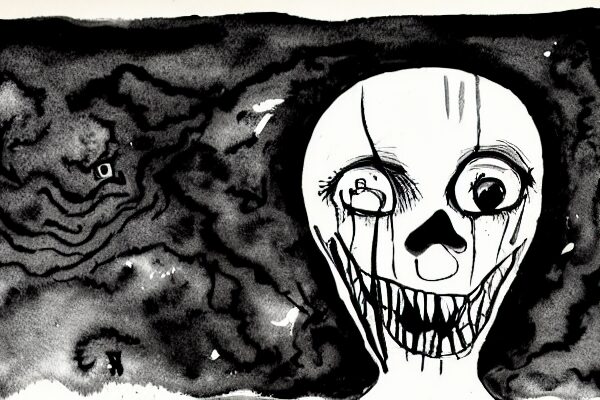
But the lasting impact of this tiny little book isn’t the mystery aspect — there are better, tighter mysteries out there — or even the glorified Hulkamaniac that Mr. Hyde has become in modern media, but rather the notion that you might not be who you think you are. “Know thyself,” says the Oracle to Neo, but is that really possible?
Or is there, in some shape or form, hidden in a cabinet in some dingy doctor’s office, a phial of liquid that’ll release all those thoughts and desires you’ve been too afraid to look at?
Can you imagine something, anything, that would make you crash your proverbial scooter into the rice fields of Ubud?
And can you then imagine a way back?
* * *
“The Strange Case of Dr. Jekyll and Mr. Hyde” by Robert Louis Stevenson is available for free at Project Gutenberg.
